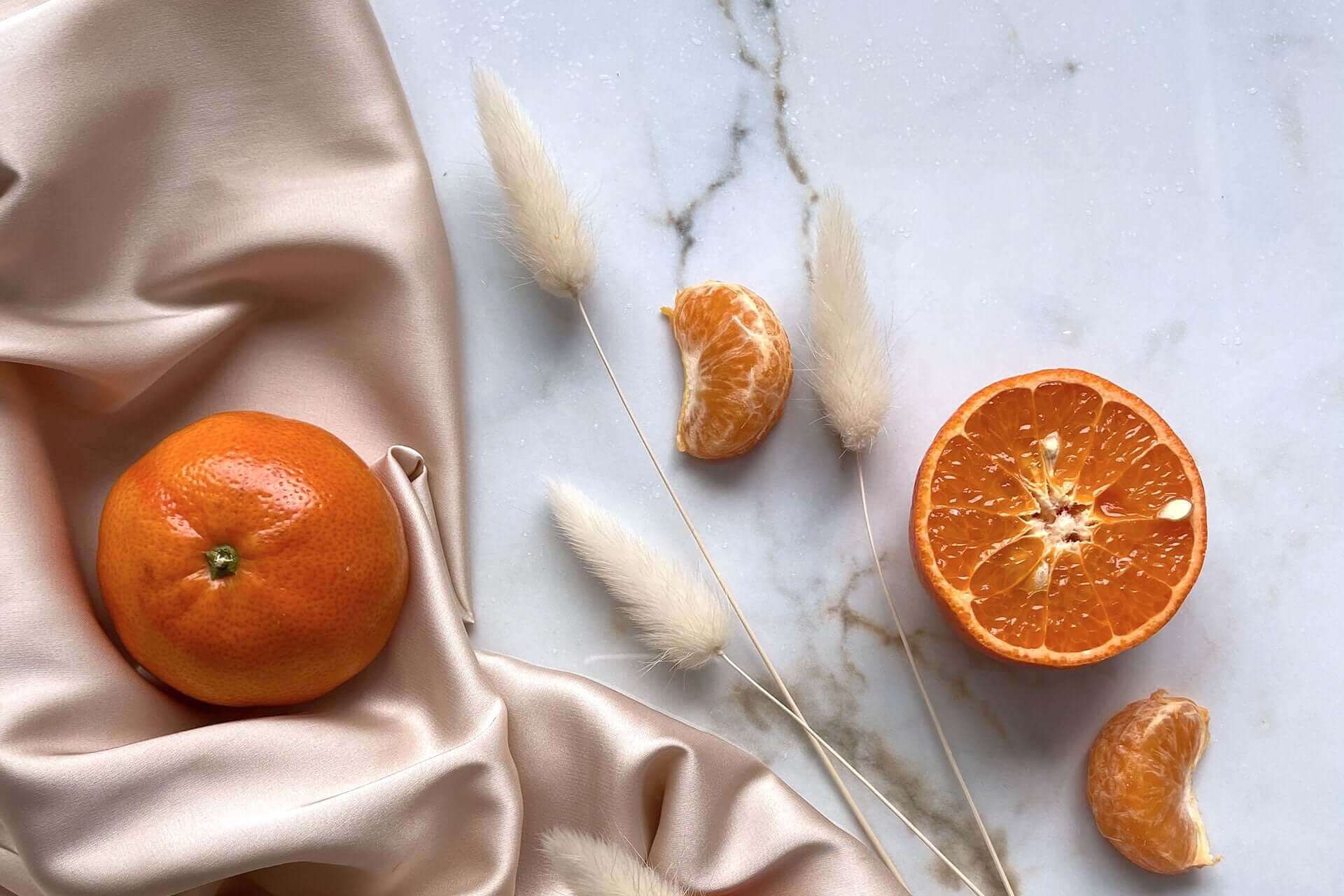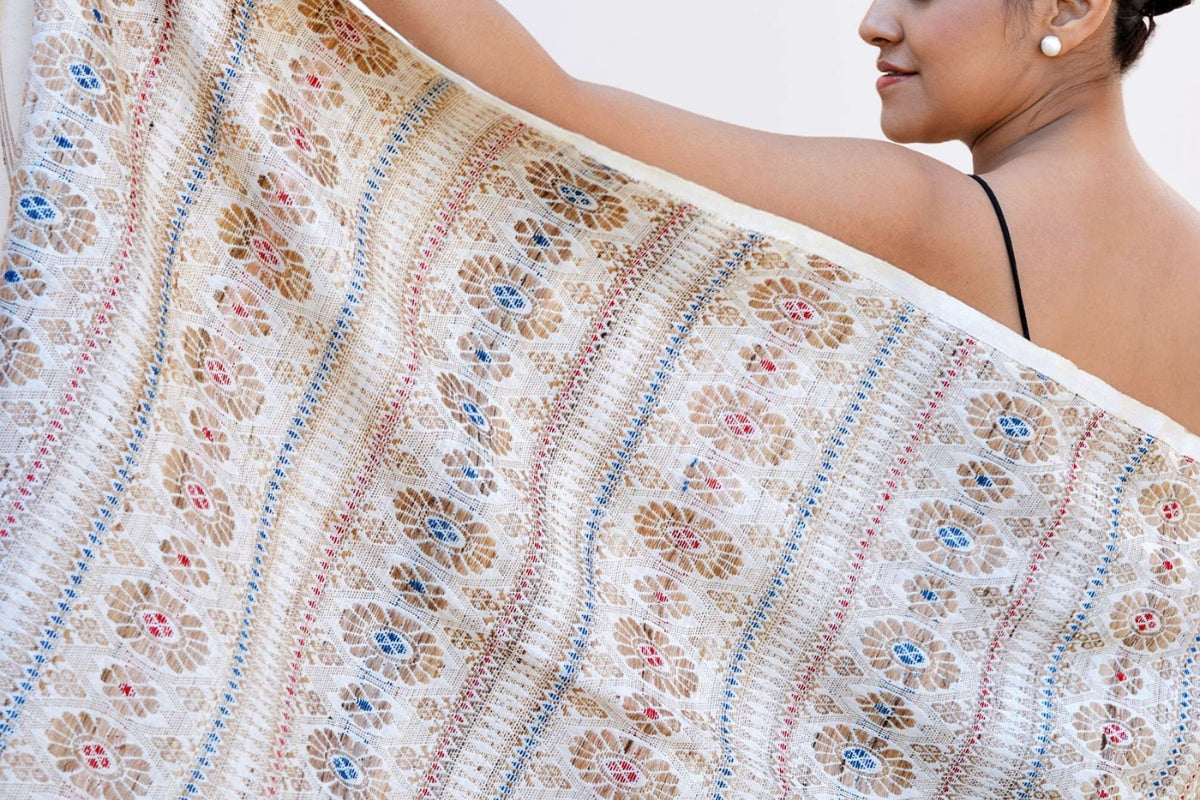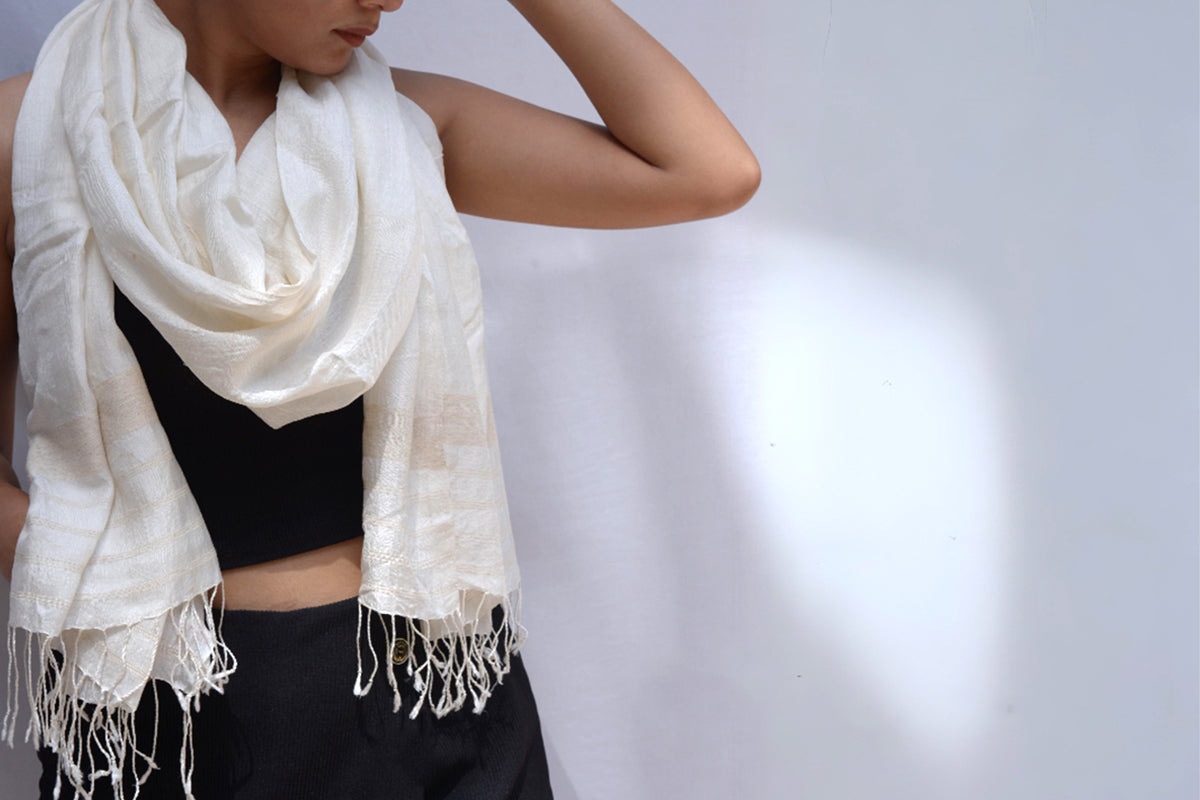Silk has long been a popular fabric due to its luxurious feel and lustrous appearance. However, traditional silk production involves the use of silk worms which are often killed in the process, which is not vegan-friendly. In recent years, there has been a growing demand for vegan silk alternatives made from plant-based sources. In this blog post, we will explore different kinds of plant-based vegan silk.
Bamboo Silk
Bamboo silk is a plant-based alternative to traditional silk that is made from bamboo fibers. It is also known as bamboo rayon or viscose. Bamboo silk is soft, smooth, and lightweight, making it a popular choice for clothing items such as dresses, skirts, and scarves. Bamboo silk is also an eco-friendly option as bamboo is a sustainable and fast-growing plant that requires minimal water and no pesticides.

Photo Credits: Organic Textile Company
Soy Silk
Soy silk, also known as soybean silk, is made from the by-products of soybeans. Soy silk is a soft and silky fabric that has a natural sheen. It is also hypoallergenic, making it a great choice for people with sensitive skin. Soy silk is often used to make clothing items such as dresses, blouses, and scarves.

Photo Credits: Tortoise and Lady Grey
Tencel
Tencel is a brand name for a type of lyocell fabric that is made from wood pulp. It is a sustainable and eco-friendly alternative to traditional silk as it is made from renewable materials. Tencel has a soft and silky feel and drapes beautifully, making it a popular choice for clothing items such as dresses, skirts, and blouses.

Photo Credits: Tencel
Pineapple Silk
Pineapple silk, also known as Piñatex, is a sustainable and eco-friendly alternative to leather. It is made from the fibers of pineapple leaves, which are a by-product of the pineapple farming industry. Pineapple silk has a textured and durable surface that is similar to leather, making it a great choice for bags, shoes, and other accessories.

Eucalyptus Silk
Eucalyptus silk, also known as Eucalyptus lyocell, is a plant-based alternative to traditional silk that is made from eucalyptus wood pulp. Eucalyptus silk is soft, silky, and breathable, making it a great choice for clothing items such as dresses, blouses, and scarves. Eucalyptus silk is also eco-friendly as eucalyptus trees require less water and pesticides compared to other crops.

Photo Credits: Eucalypsohome
Hemp Silk
Hemp silk is made from the fibers of the hemp plant. It is a durable and strong fabric that has a soft and silky feel. Hemp silk is also eco-friendly as the hemp plant requires minimal water and no pesticides. Hemp silk is often used to make clothing items such as dresses, skirts, and scarves.

Photo Credits: Hemp Silk Blend Charmeuse
Lotus Silk
Lotus silk, also known as lotus fiber, is made from the fibers of the lotus plant. The fibers are extracted from the stem of the plant and are then hand-spun into silk-like threads. Lotus silk is a luxurious fabric that has a soft and silky feel. It is also eco-friendly as the lotus plant grows naturally in water and requires no pesticides or fertilizers.

Photo Credits: CCS
Rose Silk
Rose silk, a sustainable and eco-friendly vegan alternative to traditional silk, is made from the natural fibers of rose petals that have fallen off their stems and would otherwise go to waste. The petals are boiled to extract their fibers, which are spun into yarn and woven into fabric. The resulting fabric has a soft and smooth texture similar to traditional silk with a matte finish and delicate drape.

Ramie Silk
Ramie silk, also known as China grass silk or grass linen, is a vegan alternative to traditional silk that is made from the natural fibers of the ramie plant. The fibers are extracted from the plant stalks, spun into yarn, and woven into fabric. Ramie silk has a lustrous sheen and a crisp texture similar to linen, making it a great choice for summer clothing items like shirts and dresses.

Photo Credits: Fibre to Fashion
Orange Silk
Orange silk is a vegan silk alternative made from citrus waste. The discarded peels and fibers from citrus fruits are repurposed to create a sustainable and eco-friendly fabric. The process involves extracting the fibers from the citrus waste, spinning them into yarn, and weaving them into fabric. The resulting fabric has a soft and lustrous texture with a unique orange color. Orange silk is a great example of upcycling and circular fashion, where waste materials are transformed into valuable products.

In conclusion, there are many different kinds of plant-based vegan silk alternatives available. Each of these alternatives offers unique benefits such as sustainability, durability, and softness. As more people become aware of the environmental impact of traditional silk production, plant-based alternatives will continue to gain popularity.





